Related Articles
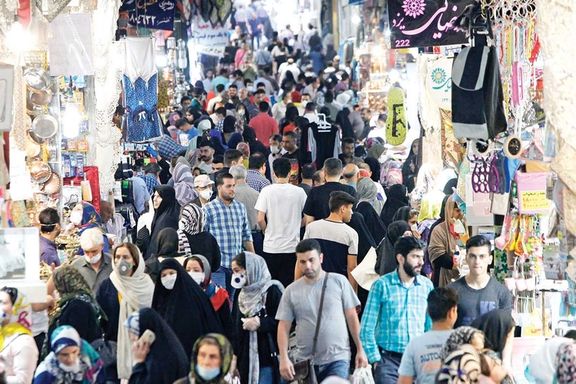
The US government has resumed nearly all Iran-related aid programs that were paused under President Donald Trump’s executive order in January, Iran International can confirm based on an obtained document and interviews with grant recipients.
The State Department had suspended funding for numerous initiatives, including Iranian human rights groups, internet freedom programs, and civil society organizations, as part of a broader review of foreign assistance under the administration’s America First policy.
The freeze, announced on January 20, was initially set for 90 days but the review process appears to have concluded in time, with all but a few of projects focusing on Iran colored green in a list of State Department “active grants” obtained by Iran International.
The State Department did not comment on the specifics of Iran-related grants when contacted by Iran International but confirmed that funding for some programs is proceeding.
"While the US Government's review of all foreign assistance is ongoing, some approved programs are continuing to advance US national interests. This includes some programs in support of the Iranian people," a State Department spokesperson said.
Multiple grantees have also confirmed to Iran International that their funding has been reinstated and that their operations will restart.
Ahmad Ahmadian, an advocate of internet freedom in Iran who leads the efforts of the California-based NGO, Holistic Resilience, in research and development of censorship circumvention technologies.
Welcoming the decision to reinstate funds to organizations like his, Ahmadian suggested that pressuring the rulers of Iran and supporting its people at the same time is not only possible but necessary if the United States wants to effect real change in the country—and beyond.
“The Trump administration’s policy is focused on increasing efficiency and avoiding the start of a new war,,” he told Iran International. “Iranian civil society remains the most promising option to achieve this goal and to change the behavior of the Iranian government.”
Ahmadian agreed that some reform toward efficiency and effectiveness might be required with the State Department grants.
“I believe new projects should demonstrate a clear return on investment, operate with greater transparency, highlight the shared values between the Iranian and American people, and focus more on tangible results,” he added.
Prior to the pause in foreign aid, Washington funded several Virtual Private Network (VPN) services that helped Iranians bypass government censorship. U.S. funding also supported projects aimed at promoting media freedom, strengthening civil society, and documenting human rights in Iran. All of these initiatives were affected by the executive order.
The halt in funding—announced on Trump’s first day in office—was widely criticized by Iranian activists who argued that the decision benefited Tehran’s theocratic rulers above all. The resumption, those affected believe, would turn the table and more.
“The Islamic Republic tried to use the temporary suspension of funds as a propaganda tool, claiming that these projects lacked usability and impact. But the reality is that many have had tangible effects on Iranian society,” one State Department grantee told Iran International, asking to remain unnamed.
“The Trump administration showed that it values Iran-related projects. I anticipate even more funding flowing into this sector. These projects are aligned with the America First policy,” the grantee added.
The State Department has not publicly commented on the status of the review or the reasons for reinstating aid. Both the pause and resumption of funding happened at a time of heightened tensions between Washington and Tehran.
President Trump has ramped up economic and diplomatic pressure on Tehran, issuing an ultimatum to Supreme Leader Ali Khamenei to agree to a deal that curtails Iran’s nuclear program or face severe consequences.
Khamenei has rejected direct talks while pressure persists and rises, asserting that Iran would not bow to American demands.
With both sides hardening their positions, concerns are growing over further escalation, particularly as the US bolsters its military presence in the Middle East and the Indian Ocean.
The most recent US intelligence assessment pointed to Tehran’s diminished influence in the region and the potential of growing discontent at home giving rise to mass protests like those seen in recent years.
The decision to reinstate grants may have had such assessments at heart.
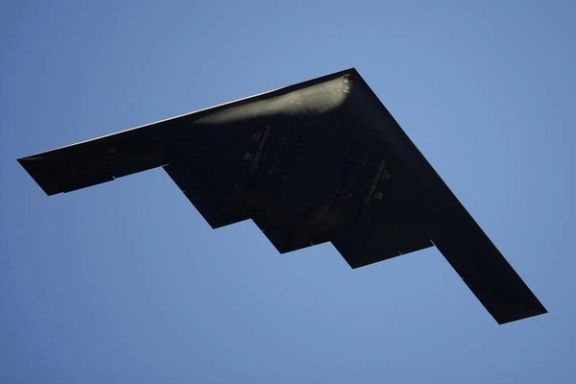
The US military has deployed long range bombers at a strategic Indian Ocean airbase, a spokesperson told Iran International, as Washington ramps up rhetoric against Iran and continues a bombing campaign on Houthi fighters in Yemen.
"B-2 Spirit bombers have arrived at Naval Support Facility Diego Garcia," a US Strategic Command spokesperson said, referring to the strategic British territory.
The military grouping and its units "routinely conduct global operations ... to deter, detect and, if necessary, defeat strategic attacks against the United States and its allies," the spokesperson added, saying it does not comment on specific actions.
US President Donald Trump has demanded Tehran come to a deal over its nuclear program or face a military intervention and warned any attack by the Houthis would be treated as emanating from Iran.
Top Iranian leaders have rejected the ultimatum and deny seeking nuclear arms. US director of national intelligence Tulsi Gabbard said on Tuesday the US intelligence community assesses Iran is not building nuclear weapons.
A joint UK-US military base at Diego Garcia has previously been used to launch US strikes on the Middle East including Iraq and Afghanistan, with the deployment suggesting the potential for large-scale air operations in the region.
The US military deployed the B-2 stealth bombers along with C-17 cargo planes and 10 aerial refueling tankers in the last two days, defense industry outlet The War Zone reported on Wednesday citing satellite imagery.
Flight tracking data and satellite imagery analyzed by open-source intelligence analysts suggest the arrival or transit of at least five B-2 Spirit stealth bombers, capable of carrying the Massive Ordnance Penetrator (MOP) – a 30,000-pound bunker-buster bomb and the 20,000-pound Massive Ordnance Air Blast (MOAB) or "Mother of All Bombs."
C-17 cargo planes are capable of transporting personnel, equipment and munitions while the refueling tankers enable sustained long-range air operations.
In October, the United States used B-2 stealth bombers for strikes on Houthi underground weapons facilities in Yemen for the first time.
President Trump reportedly issued a two-month deadline to Iran, via the United Arab Emirates, to agree to a new nuclear arrangement, vowing military consequences should Tehran fail to comply.
The report of the deployment came hours after Iran unveiled what it termed a new missile city, run by the Islamic Revolutionary Guard Corps (IRGC).
Iranian state media reported the display of various domestically produced missiles, including long-range ballistic types, with Chief of Staff of the Armed Forces Mohammad Bagheri vowing enhanced missile capabilities in the future.
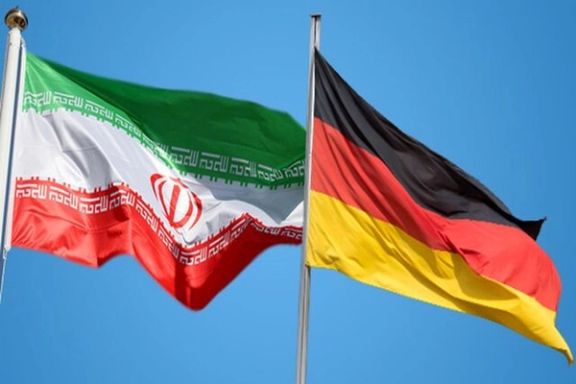
The German embassy in Tehran is investigating reports of the detention of a German national and has raised the matter with Iranian authorities, a source from the German Federal Foreign Office told Iran International on Sunday.
“The Foreign Office takes reports about detentions of German nationals very seriously. Our embassy in Tehran is investigating the report intensely and has confronted the Iranian side at a high level with the reports,” the source said.
No further details were immediately available on the identity of the detainee or the circumstances of their arrest.
On Saturday, Iranian Finland-based journalist Kambiz Ghafouri reported the alleged arrest of a male German citizen in Iran, saying he is currently in quarantine at Tehran's notorious Evin Prison.
In January, the European Parliament adopted a motion for a resolution condemning Iran’s detention of European Union citizens, labelling the practice as “hostage diplomacy.”
The resolution called for the immediate release of detained EU nationals and for a stronger coordinated diplomatic efforts by EU member states.
In its resolution, the European Parliament “strongly condemns Iran’s use of hostage diplomacy” and calls for the immediate and safe release of all EU citizens held in the country, including Olivier Grondeau, Cécile Kohler, Jacques Paris, and Ahmadreza Djalali.
Last month, the body of German-Iranian national Jamshid Sharmahd was returned to Germany after his death in an Iranian prison while awaiting execution.
Sharmahd was abducted by Iranian agents during a visit to the United Arab Emirates in 2020 and forcibly taken to Iran. In February 2023, the Iranian judiciary sentenced him to death on charges of endangering national security, but he died of a stroke before his scheduled execution, according to Iran's judiciary.
Sharmahd was convicted of heading a pro-monarchist group named Tondar accused of a deadly bombing incident that occurred in 2008 at a religious center in Shiraz, killing 14 and injuring 215 more. The accusation, which Sharmahd repeatedly denied, was never substantiated by documented evidence.
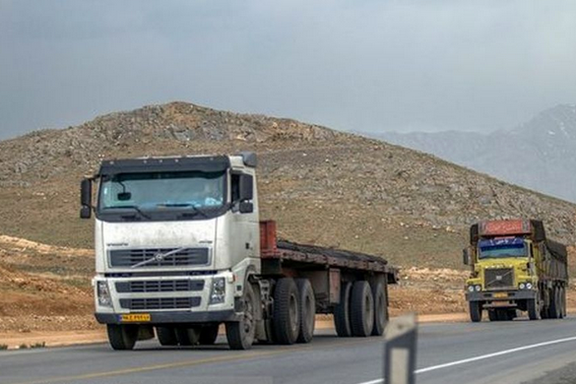
The Iranian government will raise diesel prices starting next month, Iran International has learned, in a move which could stoke unrest as economic malaise mounts.
Diesel will be sold at market rates, and a significant portion of government subsidies will be eliminated.
An executive directive outlining the changes has already been drafted and awaits official approval.
The change is likely to deepen the economic burden on citizens, adding to the existing strain caused by a weak currency and high inflation.
A gasoline price hike in November 2019 triggered days of nationwide protests, during which authorities deployed paramilitary forces who used overwhelming force to suppress the unrest.
At least 1,500 people were killed, according to a Reuters investigation.
Economic conditions have since worsened, with persistent high inflation pushing tens of millions of Iranians into deeper poverty.
Iran International reported in December that Iran was preparing to ease fuel subsidies in a move likely approved at the highest levels of government.
At the time, documents indicated that the monthly distribution of subsidized gasoline would be drastically cut from 87 million liters to 42.5 million liters.
Iranians had already begun noticing changes as fuel stations started installing eight-digit price displays—signaling a potential shift in pricing policies.
The diesel price increase comes as Iran’s top officials continue to discuss also a possible gasoline price hike this spring.
Sources told Iran International that security agencies are increasingly worried about the country’s growing dependence on fuel imports and its shrinking capacity to meet demand under escalating US sanctions.
Washington this week imposed a new round of sanctions targeting Iran’s oil industry, including key brokers, shipping firms, and the head of the National Iranian Oil Company.
These measures, part of the renewed "maximum pressure" campaign by the Trump administration, aim to cut Iran’s oil revenue, which remains the backbone of its economy and regional military operations.
With Iran pumping 3.2 million barrels per day as of January, the latest restrictions are expected to further strain the country’s financial and energy sectors.
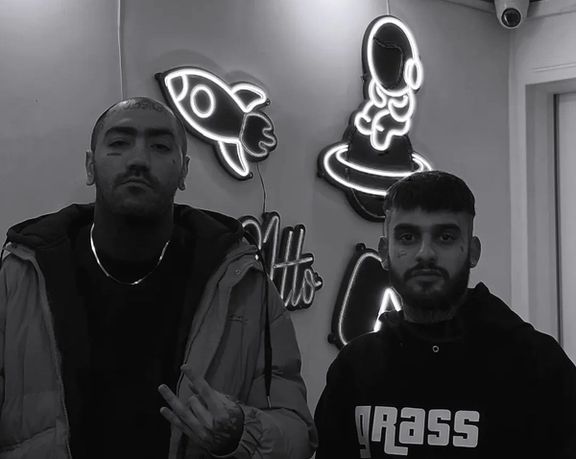
Security forces arrested Iranian rapper Arash Seyedi, known as Eycin and his producer Rasam Sohrabi during a live underground performance at a cafe in western Tehran on Thursday, eyewitnesses told Iran International.
“He had a performance at a café in western Tehran in Janatabad when plainclothes officers and the police arrived, arrested him and his composer, and detained several people there,” one source said, requesting to remain anonymous for security reasons.
A video obtained by Iran International shows the moment the officers storm the venue and detain the underground rapper. A masked man can be seen in the footage, who the source said was one of those who detained Eycin.
“They came with a van and took everyone away. The venue was also sealed off,” the source added, "Eycin had scheduled several performances in cafes, on a tour, in Qeshm in recent weeks."
The fans were later released but two sources told Iran International that Eycin and his composer remained in detention.
A source said that both Eysin and Sohrabi appeared in court on Friday morning, however the charges against them remain unknown.
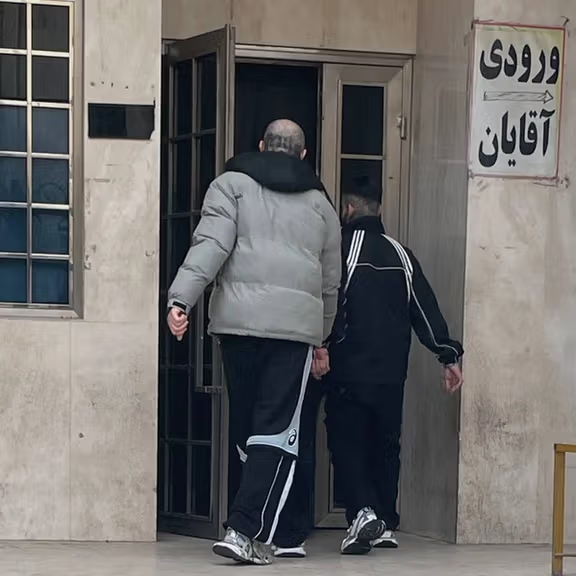
“Lately, rappers have been organizing a lot of underground performances through various methods. It seems like they want to crack down before it spreads,” the source said.
International human rights organizations have condemned Iran's suppression of artistic expression in recent years.
In the aftermath of Iran's nationwide protests sparked by the death in custody of Mahsa Amini in September 2022, at least two rappers - Toomaj Salehi and Saman Yasin - were sentenced to death in connection with their music. Following an international outcry, their death sentences were revoked.
